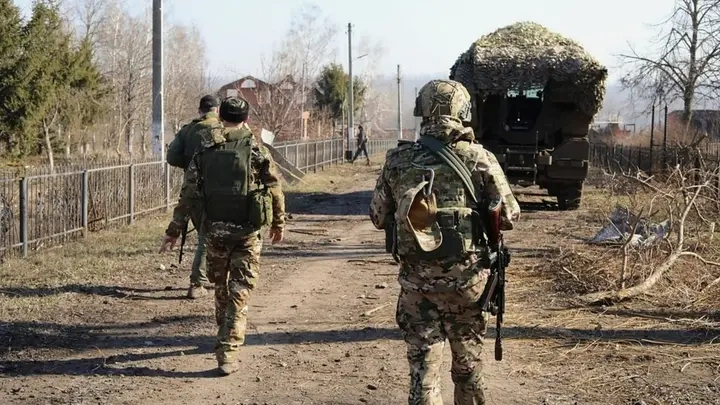Kursk, Russia. In a significant development, Russian forces have reclaimed the strategic Kursk region from Ukrainian control, marking a pivotal moment in the ongoing conflict. This operation, however, has sparked intense debate regarding its implications and the true cost borne by both sides.

The Incursion and Its Objectives
In August 2024, Ukrainian forces launched an audacious incursion into Russia's Kursk region. The primary aim was to divert Russian military resources from other critical fronts, thereby alleviating pressure on Ukrainian territories. Initially, this maneuver yielded successes, with Ukrainian troops capturing several settlements, including the town of Sudzha. This operation was perceived as a bold statement of Ukraine's offensive capabilities.
Challenges and Retreat
Despite early gains, Ukrainian forces encountered formidable challenges. Logistical constraints, harsh winter conditions, and fierce resistance from reinforced Russian troops, bolstered by North Korean units, strained Ukrainian operations. The protracted engagement led to significant casualties and equipment losses. Consequently, Ukrainian forces commenced a strategic withdrawal to prevent encirclement, effectively ceding control of the region back to Russia.

Russians consider it as a Strategic Win
Russian authorities have hailed the recapture of Kursk as a testament to their military resilience. The operation involved reclaiming over 100 square kilometers, including multiple settlements. Russian Defense Ministry statements emphasized the elimination of enemy forces and the restoration of territorial integrity.

Ukrainian Sentiment
The Ukrainian populace exhibits mixed reactions to the operation. While some view the incursion as a necessary demonstration of defiance and strategic maneuvering, others question the high human and material costs. The debate centers on whether the temporary gains justified the sacrifices endured. Reuters
Analytical Perspective
The Kursk operation underscores the complexities inherent in modern warfare. While territorial control remains a tangible measure of success, the intangible costs—human lives, economic strain, and geopolitical ramifications—warrant thorough consideration. Both Russia and Ukraine face the challenge of balancing immediate military objectives against long-term national interests and regional stability.
As the dust settles over Kursk, the international community watches closely. The incident serves as a poignant reminder of the delicate balance between aggression and diplomacy. The lessons gleaned from this operation will likely influence future engagements and the pursuit of a sustainable resolution to the conflict.













No comments yet.